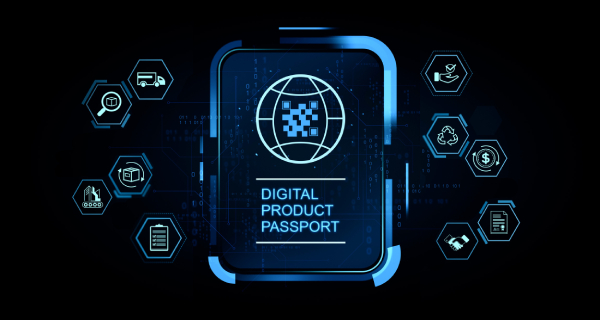Giovanni D'angelo
Global Senior Compliance 2.0 Strategic Streams Manager
![]() BIO
BIO

Introduced under the Ecodesign for Sustainable Products Regulation (ESPR), the Digital Product Passport (DPP) is a comprehensive digital identity accessible through unique product identifiers that contains detailed lifecycle data about a product, covering its composition, sustainability, performance, and recyclability. Its purpose is to enhance transparency, traceability, and circularity across supply chains, empowering consumers, regulators, and businesses to make informed decisions.
The DPP is not just a sustainability tool, it’s a regulatory obligation.
The ESPR, published on 18 July 2024 and entering into force from July 2026, establishes the legal framework for product-specific and horizontal eco-design requirements, including the compulsory implementation of DPPs.
However, specific-product DPP obligations for individual product groups will be defined through delegated acts.
The regulation is part of the EU Green Deal and the 2020 Circular Economy Action Plan, aiming to double the EU’s circularity rate and improve energy efficiency by 2030.
Additionally, the European Commission will launch a public web portal to enable users to search, consult, and compare data contained in DPPs.
The implementation of DPPs will follow a phased approach, with delegated acts defining specific requirements for each product group.
The first ESPR Working Plan (2025–2027) outlines priority sectors and indicative adoption dates:
Final products: textiles/clothing (2027), tires (2027), furniture (2028), mattresses (2029).
Intermediate products: iron/steel (2026), aluminium (2027).
NB: these are the dates of adoption of the delegated acts; the obligation for operators will typically take effect 18–36 months after adoption, as specified in each act.
- From 2026 onward: delegated acts will begin to define product-specific DPP requirements.
- 2027–2029: sectoral DPP obligations will begin to take effect, depending on the product group and transitional periods.
Digital Product Passport will concern any physical goods that are placed on the market or put into service, including components and intermediate products.
DPP is transforming product compliance and sustainability in the EU and businesses across sectors must prepare to integrate DPPs into their operations.
This shift not only ensures regulatory compliance but also opens new opportunities for innovation, transparency, and circularity in the European market.

Global Senior Compliance 2.0 Strategic Streams Manager
![]() BIO
BIO
Over 15 years of experience in sustainability, spanning both certification and consultancy, Giovanni has developed a deep understanding of ESG strategies. He leads market development strategy in the ESG domain at a global level, driving growth initiatives across geographies and BU to strengthen the RINA’s position as a sustainability leader.

Product Manager expert in Technological Regulations
![]() BIO
BIO
Anna Laura is a Product Manager at RINA, where she leads development of products and services aligned with market trends and regulatory frameworks. She holds a degree in Physics Engineering and has gained experience at Telsy, Open Fiber, and LBNL. She combines technical rigor and strategic vision to turn compliance into innovation.